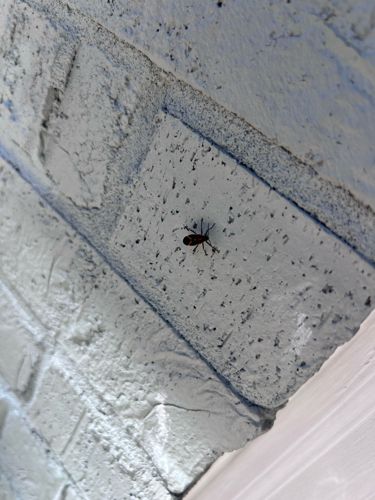Weevil
Scientific Name: Curculionidae (general, specific species unknown from image)
Order & Family: Order: Coleoptera, Family: Curculionidae
Size: Typically 1 mm to 40 mm (most are under 6 mm)

Natural Habitat
Highly varied, depending on species. Can be found in agricultural fields, gardens, forests, stored food products, and homes. Many are associated with specific plant hosts.
Diet & Feeding
Herbivorous. Most weevils feed on plants, consuming roots, stems, leaves, flowers, seeds, or fruits. Many species are highly specialized feeders.
Behavior Patterns
Weevils undergo complete metamorphosis (egg, larva, pupa, adult). Larvae are often legless grubs that feed internally within plant tissue. Adults are generally slow-moving, often feigning death when disturbed. Many species are nocturnal.
Risks & Benefits
Risks: Many species are significant agricultural pests, causing damage to crops and stored grains (e.g., rice weevil, boll weevil). Some can infest homes, feeding on pantry items. Benefits: Some weevils are used as biocontrol agents against invasive weeds.
Identified on: 9/25/2025